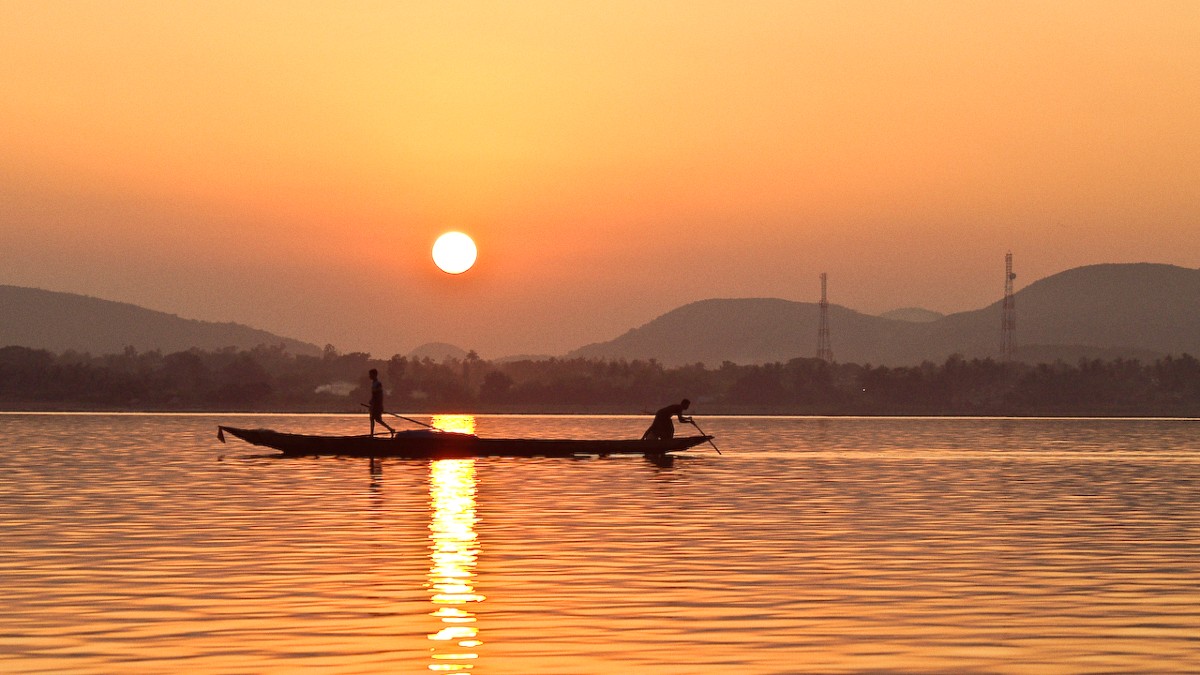
Orissa, India
Winter (November to February): This period offers mild and pleasant weather. Temperatures range from a comfortable 15°C to 30°C (59°F to 86°F). Humidity levels are low, and rainfall is minimal. This period welcomes many visitors, with sunny days ideal for sightseeing and beach activities.
Summer (March to May): Puri becomes hot and humid during these months. Temperatures frequently rise from 30°C to 40°C (86°F to 104°F). High humidity means the heat feels more intense. While the sun is strong, ocean breezes can offer some comfort.
Puri's coastal location makes it susceptible to tropical cyclones, especially during the pre-monsoon (April-May) and post-monsoon (October-November) periods. Travelers during these months are advised to monitor weather forecasts closely and follow official advisories.
High tides can impact beach access. Check local conditions before heading out, especially during the monsoon.
November - February
Ideal weather, cool, dry, sunny days. Good for all outdoor activities and festivals.
High tourist numbers. Increased costs for accommodation and travel. Crowded attractions.
October, March
Fewer crowds than peak season. October: pleasant weather. March: good days before intense heat. Lower prices.
October: occasional rain. March: warm, especially afternoons.
April - September
Substantial discounts on hotels and travel. Fewer tourists for a relaxed visit.
Extreme heat in April/May. Heavy rain/humidity in monsoon. Tropical cyclone vulnerability.
November to February offers the most comfortable weather for exploring the city, visiting temples, and enjoying the beach.
The winter months, from November to February, are perfect for visiting Chilika Lake. This is when migratory birds arrive, making for excellent birdwatching opportunities.
This unparalleled event typically takes place in June or July.
It falls within the monsoon season.
The spiritual energy and spectacle are unique and unforgettable.
Millions of devotees attend.
Advance booking for accommodation and transport is strongly advised.
For most foreign nationals, obtaining a visa is a step for entry to India.
The e-Visa option is generally the most convenient for travelers visiting for tourism, business, or medical purposes.
When applying for your visa, have specific documents ready.
Ensure all documents are in order and consider health advice before your trip.
The Indian Rupee (INR), symbolized by ₹, is the local currency.
You can exchange major international currencies like US Dollars, Euros, and British Pounds at international airports, authorized money changers, and banks in Bhubaneswar and Puri. ATMs are widely available throughout Puri, specifically near the main beach road and the temple area, for convenient cash withdrawals.
While larger hotels, restaurants, and shops accept credit and debit cards, cash remains important for street vendors, smaller shops, local transport like auto-rickshaws, and temple offerings. It is wise to carry a mix of small and medium denominations of cash.
Stays in basic guesthouses or pilgrim lodges. Relies on street food and inexpensive local eateries. Uses shared public transport or walks. Focuses on free attractions like the beach and temple exteriors.
Estimated daily spend: ₹1,500 - ₹2,500 / $18 - $30 USD
Accommodation: Guesthouse/Hostel (₹500-₹1000)
Chooses comfortable hotels with air conditioning and private bathrooms. Dines at a mix of local restaurants and mid-range establishments. Uses a combination of auto-rickshaws and occasional taxis for convenience. Includes entry fees for major sites and perhaps a guided tour.
Estimated daily spend: ₹3,500 - ₹7,000 / $42 - $85 USD
Accommodation: Mid-range Hotel (₹1500-₹3500)
Opts for high-end beachfront resorts with various amenities. Enjoys fine dining experiences. Arranges private taxis or a car with a driver for all transport. May opt for exclusive tours or private guides.
Estimated daily spend: ₹8,000+ / $95+ USD
Accommodation: High-end Hotel/Resort (₹4000+)
| Category | Guideline | Notes |
|---|---|---|
| Restaurants | 5-10% of the bill | Appreciated for good service, check for service charge. |
| Hotel Staff | ₹50-₹100 | For porters, room service, or cleaners. |
| Drivers | ₹100-₹500 | ₹100-₹200 for half-day, ₹200-₹500 for full day. |
| Tour Guides | ₹200-₹500 per person per day | Based on service quality and tour duration. |
| Street Vendors | Not expected | Tipping is not customary in these settings. |
Prioritizing your health and safety makes for a smooth journey.
Visit at least 4-6 weeks before your trip for personalized advice.
Ensure MMR, DTaP, Polio, Chickenpox, and Flu shots are current.
Highly recommended due to water and food contamination risks.
Protect yourself from common health issues.
Traveler's Diarrhea: Drink only sealed bottled or purified water. Eat well-cooked food, avoid raw salads, unpeeled fruits, and ice from unknown sources. Use Hand sanitizer frequently.
Mosquito-Borne Diseases (Dengue, Malaria): Use a DEET-based insect repellent. Wear long sleeves and pants, especially at dawn and dusk. Sleep under a Mosquito net if needed. Japanese Encephalitis considered for prolonged rural stays.
Heatstroke/Dehydration: Stay hydrated. Avoid direct sun midday. Wear light clothing and a Wide-brimmed hat.
Puri has a government hospital and private clinics. For serious cases, Bhubaneswar offers advanced facilities.
Strictly drink only sealed bottled water or use a Portable water filter bottle for safety.
Eat at reputable restaurants or busy street food stalls; ensure food is cooked thoroughly and served hot.
Puri is generally safe, but common tourist precautions are advised.
A comprehensive travel insurance policy is highly recommended. Keep emergency contacts handy.
Medical emergencies, trip cancellation, lost luggage, emergency evacuation. Consider World Nomads, SafetyWing, or Insubuy.
Police: 100, Fire: 101, Ambulance: 102, National Tourist Helpline: 1363 (toll-free).
Contact appropriate service immediately. For passport loss or serious issues, contact your country's embassy or consulate in India.